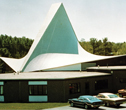Owners of commercial and industrial buildings have long recognized the need for periodic preventative maintenance to optimize roof system service life. However, many homeowners and multifamily residential property managers seldom perform necessary routine roof system inspections and maintenance.
NRCA is concerned long-term warranties offered by many residential roofing product manufacturers do not necessarily ensure satisfactory roof system performance. Warranties often contain provisions that significantly limit the manufacturer's liability and consumer's remedies in the event problems develop or roof system damage occurs. Most warranties also require roof systems to be properly maintained.
Advantages
The best way for a homeowner or multifamily residential property manager to ensure satisfactory post-installation roof system performance is to perform periodic maintenance through a formalized, long-term maintenance program. Formalized maintenance programs offer the following advantages:
- Maintenance is proactive. It helps identify problems early when they can be corrected relatively easily and before they become more widespread.
- Maintenance can reveal sources of leaks before they occur.
- Response time to address leakage is greatly reduced. Warranty repairs, on the other hand, take time to be processed while problems remain unresolved.
- Maintenance allows for a planned approach to roof management and future roof-related expenditures.
Preventative maintenance
A preventative maintenance program for residential buildings should consist of periodic inspections and routine maintenance, as well as any necessary repairs identified during the inspections.
NRCA recommends homeowners or building managers inspect their roof systems at least twice per year, preferably in the spring and fall. Additional inspections are suggested after any severe weather events, such as a hurricane, tornado or hailstorm.
A preventative maintenance inspection should consist of a thorough visual inspection of the roof system and adjacent surfaces, such as sidewalls or chimneys, that abut roof surfaces. Any abnormalities or signs of deterioration should be noted.
For example, for asphalt shingle roof systems, shingle curling or splitting is evidence of deterioration. Any dislodged or missing shingle tabs should be repaired to maintain proper weathertightness. For tile, slate, wood shingles or shakes, and metal shingles, any cracked, broken or missing components need to be repaired or replaced to maintain proper weathertightness.
During a maintenance inspection, any debris such as leaves or other foreign materials that have accumulated on the roof should be removed. Special attention should be paid to any valleys, gutters or roof drains where debris tends to accumulate and limit proper drainage.
For steep-slope roofs, a maintenance inspection typically can be performed from the ground or a ladder to access the roof system's edge. NRCA does not recommend homeowners or inexperienced property management personnel access or walk on roofs unless they have the experience and proper equipment to do so safely.
If a maintenance inspection reveals repairs are needed, NRCA recommends an experienced roofing contractor be promptly retained to perform the repairs. NRCA does not recommend homeowners or property management personnel attempt to undertake roof system repairs unless they are experienced in doing so and have the necessary equipment to do so properly.
Some homeowners and managers of multifamily residential units elect to retain a roofing contractor to perform preventative maintenance inspection and any necessary repairs. This approach relieves homeowners and property managers of the responsibility and risks associated with conducting inspections and repairs on their own. Such an approach also allows the inspection, removal of rooftop debris and any necessary repairs to take place at one time. Many professional roofing contractors offer this service through formalized, long-term maintenance agreements.
Closing thoughts
Whether homeowners or multifamily residential property managers do so on their own or retain professional roofing contractors, NRCA encourages preventative roof system maintenance on residential roof systems. Additional useful information for consumers can be accessed in the Consumer section of NRCA's website, www.nrca.net/consumers.
Mark S. Graham is NRCA's associate executive director of technical services.



